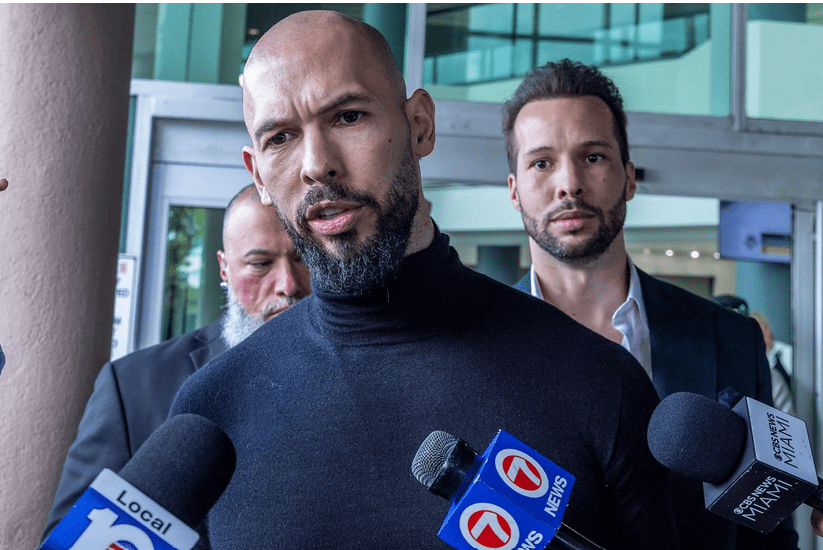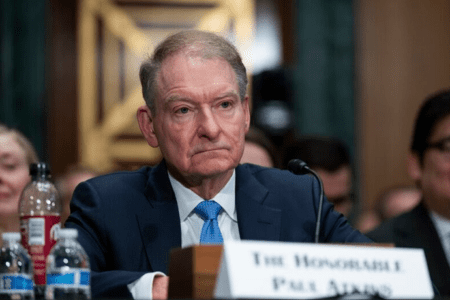On Feb 27, 2025, controversial influencers Andrew Tate and Tristan Tate landed in Fort Lauderdale, Florida, just 50 miles from Donald Trump’s Mar-a-Lago estate, after Romanian authorities unexpectedly lifted a travel ban tied to their ongoing human trafficking, rape, and organized crime charges. According to the Organized Crime and Corruption Reporting Project (OCCRP), this development follows reported pressure from the incoming Trump administration on Romania, raising serious questions about judicial integrity, international law enforcement cooperation, and the financial networks sustaining the Tates’ empire.
Legal Context: A Stalled Romanian Prosecution
Andrew Tate, 38, and Tristan Tate, 36, dual US-UK citizens and former kickboxers turned social media influencers, were arrested in Bucharest in December 2022 by Romania’s Directorate for Investigating Organized Crime and Terrorism (DIICOT). The brothers face allegations of forming an organized criminal group, human trafficking, trafficking of minors, sexual intercourse with a minor, and money laundering—charges carrying potential sentences of up to 10 years for trafficking and rape under Romanian law.
Andrew Tate also faces a specific rape charge. A second probe launched in August 2024 added further accusations, yet the case has stumbled. In December 2024, a Bucharest appeals court rejected the prosecution’s initial indictment due to procedural flaws, sending it back to DIICOT for revision.
Despite this setback, the Tates remained under judicial supervision, with travel restrictions in place—until February 27, 2025, when DIICOT approved a “modification” of the ban, allowing their departure on a private jet from Bucharest’s Băneasa airport. The OCCRP notes that they must still respond to Romanian summons, with violations potentially triggering stricter measures. However, their physical absence from Romania complicates enforcement, especially given parallel legal challenges in the UK, where Bedfordshire Police have secured an extradition warrant for rape and trafficking allegations, contingent on the Romanian case’s resolution.
Political Interference: Trump’s Shadow Looms Large
The timing of the Tates’ departure aligns suspiciously with reports of US political pressure. The Financial Times revealed that Trump administration officials, including special envoy Richard Grenell, lobbied Romania to ease restrictions during talks at the Munich Security Conference in February 2025. Grenell, a known Tate supporter, has criticized US aid to Romania as “weaponized” against “anti-woke” figures like the Tates. Romania’s Foreign Minister Emil Hurezeanu denied direct pressure but confirmed the Tates were mentioned in discussions with Grenell. This follows the Tates’ vocal support for Trump, with Andrew Tate calling him “the best president in history” on X in 2024.
The OCCRP underscores the proximity of Fort Lauderdale to Mar-a-Lago, hinting at a possible political sanctuary for the brothers. Florida Governor Ron DeSantis, however, distanced himself, stating on February 27, 2025, that the Tates were “not welcome” in his state, citing his anti-trafficking stance, and announcing a “preliminary inquiry” by the Florida Attorney General. This juxtaposition of Trump’s apparent backing and DeSantis’s rejection exposes a rift within US conservative circles, with legal and political ramifications yet to unfold.
Financial Underpinnings: The Real World’s Resilience
The Tates’ ability to fund a private jet escape underscores their lucrative financial operations, despite legal woes. Sky News reported on February 27, 2025, that a late-2024 cyberhack of “The Real World”—their online platform promising “18 modern wealth creation methods”—revealed millions in monthly revenue from thousands of subscribers, even during house arrest. This platform, marketed to followers of their ultra-masculine ideology, has faced scrutiny for alleged pyramid scheme traits, yet continues to thrive. A Romanian court’s simultaneous decision to lift a seizure on assets—including sports cars, properties, and bank accounts—further bolsters their financial mobility, raising questions about Romania’s judicial consistency and potential external influence.
X Discourse: A Polarized Debate
The Tates’ departure has ignited fierce discussion on X, reflecting broader societal divides. Supporters, such as @BehizyTweets on February 17, 2025, hailed Trump’s intervention, claiming Romanian courts dismissed much of the prosecution’s evidence as “illegal” and suggesting USAID funds fueled a politically motivated case.
@McBrideLawNYC echoed this in November 2024, asserting the brothers’ innocence after a judge excluded key evidence. Conversely, critics like @TheRickyDavila on February 18, 2025, blasted Trump’s support for “disgusting brothers” accused of heinous crimes, while @premnsikka questioned Romania’s capitulation to US pressure.
Victims’ advocates on X expressed outrage, with posts noting the distress of British accusers who fear the Tates could now evade justice. This polarized sentiment underscores the case’s volatility, blending legal facts with conspiracy-laden narratives.
Critical Analysis: A Legal and Ethical Quagmire
From a legal standpoint, the Tates’ exit is a procedural anomaly. Romania’s judicial system, while obligated to uphold due process, appears to have bent under external influence, undermining its sovereignty and the EU’s anti-trafficking framework. The Reuters report of February 27, 2025, notes Andrew Tate’s pledge to return by March’s end for judicial check-ins, but this hinges on voluntary compliance—unlikely without extradition leverage, especially if US authorities shield them. The UK’s extradition bid adds complexity; British PM Keir Starmer, during a February 27 press conference with Trump, emphasized human trafficking as a “global security risk,” signaling intent to pursue justice, yet US-Romania dynamics may stall this.
Financially, the Tates’ wealth—untouched by effective sanctions—exposes gaps in international efforts to choke funding for alleged criminal enterprises. Their narrative of victimhood, amplified on X, sustains a follower base that bankrolls their defiance, posing a challenge to regulators and law enforcement. Politically, Trump’s involvement risks legitimizing figures accused of exploiting vulnerable populations, contradicting DeSantis’s stance and Florida’s anti-trafficking laws, which could trigger a jurisdictional clash if the state pursues its inquiry.
Conclusion
The Tate brothers’ flight to the US is not merely a legal curiosity but a flashpoint exposing tensions between national sovereignty, international justice, and political agendas. For FinTelegram readers, this case highlights the intersection of finance and crime in the digital age—where online empires can outpace legal accountability. Romania’s acquiescence, the Tates’ financial resilience, and Trump’s shadow raise red flags about the rule of law’s fragility. As investigations span Romania, the UK, and now potentially the US, the brothers’ fate—and the precedent it sets—will test the limits of global cooperation against trafficking networks. For now, their presence in Florida, a stone’s throw from Mar-a-Lago, leaves justice hanging in a precarious balance.





